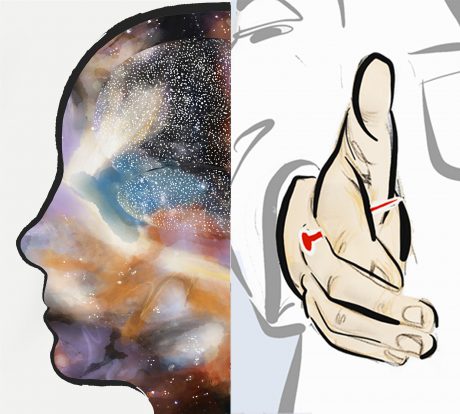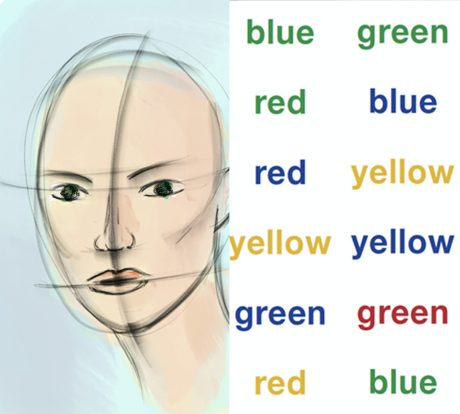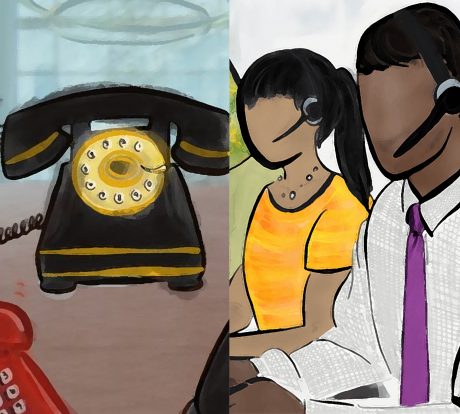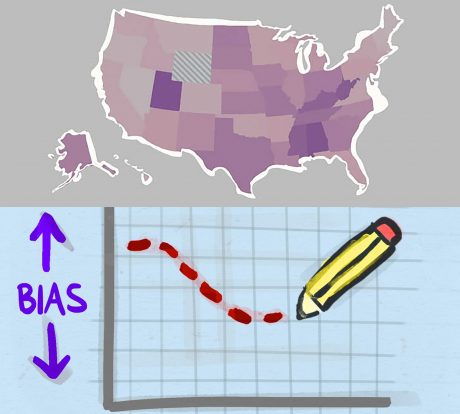Implicit Bias:
Learn the science.
Make better decisions.
Browse modules
For quick insights, explore our whole library of videos, podcasts, articles, and interactive demos.
To learn more about how to use this site, consult the User Guide.
Media Type
Social Group
Work Process
Profession
Sort
Reset
Can implicit associations be measured? How do they compare to self-reported attitudes and beliefs? Take the IAT to find out!
The Implicit Association Test (IAT)
Try this quick brain-teaser to test your critical thinking skills – and learn about a pernicious cognitive bias.
Can you guess the rule?
A person’s gender can affect negotiation outcomes and career prospects. How can we
ensure equitable pay for everyone?
Gender in Negotiation
After taking an Implicit Association Test, you will likely have questions. Here are answers to the some of the most common ones.
Frequently asked questions about the IAT
Media is a powerful communication tool but can also create and propagate bias. See how bias plays out in the media coverage of the war in Ukraine in 2022.
Bias in media: a case study
What can you do as an educator to reduce bias in the classroom? Check out this action sheet.
Debias the classroom
Structured interviews are over 2x better than standard unstructured interviews at identifying talent. What's the secret?
How to conduct a structured interview
How “human” does a face have to be before it looks alive to you? Try this demo to test your intuitions.
When does life “spark” in a face?
Medical practicioners are committed to equal treatment, but data still show disparities. Learn how to subvert bias to make treatment more equitable.
Bias in Healthcare
How have various implicit biases changed in the U.S. over time? Draw your predictions and compare them with the real data!
You Predict: Where Is Bias in America Headed?
A person’s voice can determine their access to mental and physical healthcare. How can we ensure equitable treatment for everyone, regardless of how they sound?
How you speak may affect your access to healthcare
Two people can receive very different sentences for committing identical crimes. Learn about one hidden bias that can distort justice.
What Sentence Would You Give?: Watch for the Anchoring Bias
Ms. King and Ms. Kang are both native-born American citizens. But are they equally American in our eyes?
Foreigners in their own country: Asians in America
Research suggests that Americans are showing a reduction in some implicit biases. Explore interactive maps to see what’s changing and what’s not.
Changes in Bias Across America: An Explorable Map
How can we better manage stress? Stress expert Professor Katie McLaughlin weighs in.
4 Ways to Manage Stress
When stress is reframed from a negative to a positive, it can actually help us perform better. Learn about the science of cognitive reappraisal.
Make Stress Work for You: Cognitive Reappraisal
Experience a powerful illusion in this demo based on experiments by Professors Dan Levin and Mahzarin Banaji.
Should You Trust Your Vision?
We say that “seeing is believing,” but visual illusions can trick us, whether we’re looking at checkerboards or human faces. How can we outsmart them?
Illusions at work
We have access to more information than ever before, but are we making better decisions? Learn how a pervasive bias skews how we interpret the data in front of us.
“The DNA is a Match”: Confirmation Bias
Attractive people aren’t just attractive: they’re seen as smarter, kinder, and more moral. It’s called the attractiveness halo.
The Attractiveness Halo Effect
Judges in over 200 cases in Florida showed no racial bias in their sentencing, yet race was still subtly influencing their decisions. How can this be?
How race-based facial features can bias inmate sentencing
Do you know what “competence” looks like? Try this quiz, based on Professor Alexander Todorov’s 2005 experiment, to learn what your impressions predict.
How well can you read a face?
What’s more likely: death by shark attack or by lightning strike? Most people choose the wrong answer because of this common cognitive bias.
The Availability Bias
Which is more likely: achieving sainthood or winning the jackpot? Are you sure? This short quiz may shake your confidence.
6 Questions That Will Make You Rethink What You Know
Here’s a little memory test designed by psychologists Amos Tversky and Daniel Kahneman (1973) to reveal a cognitive blindspot.
How Good is Your Memory?
Expectations can be powerful. Even if they're never said out loud, the beliefs we carry in our minds can become self-fulfilling prophecies.
The Pygmalion Effect
A study found that being Black hurt an applicant’s changes of being hired just as much as a felony conviction. What do biased hiring decisions mean for the survival of a business?
Race Bias in Hiring: When Both Applicant and Employer Lose
Data collected between 1970-2002 suggest that traditional mandatory trainings don’t work and can even backfire. How do we create education that works?
Traditional “diversity training” is out. Now what?
The science suggests that we evaluate men’s and women’s work differently… regardless of our own gender. Why? And what can we do about it?
Can women be biased against other women?
Most of us believe we can control what pieces of information influence our decisions. But can we? The Stroop Test suggests no.
Strooped!
Voices are more than just sounds; they’re auditory "faces" that can give clues to who we are. But are these clues always accurate? How might accents skew our decision-making?
Hear Me Out: Accent Bias
We like to think we’re objective decision makers. But what happens when we choose the person first, then pick the standard that supports our decision?
The Standards We Choose: The Police Chief Study
Sometimes it makes sense to shift our standards based on context. But are we raising and lowering the bar when we shouldn’t?
Shifting Standards
40 years ago, researchers found that patients with amnesia could form new memories… implicitly. This sparked an ongoing revolution in research on the hidden mind.
What Are Implicit Associations?
Learn the story of a small group of scientists, the test they developed to reveal implicit processes of the mind, and how they shared it with the world.
Measuring Implicit Bias: The Implicit Association Test (IAT)
We work out, then pig out. Does this also happen with our good deeds? How can we avoid bringing our moral scorecards to the workplace?
Moral Credentialing
Humans help each other all the time. So what’s wrong with helping?
Who Are We Helping?
We overvalue things we own. This tendency seems harmless for family keepsakes — but it can also sway big decisions we make about homes, investments, and more.
The Endowment Effect
One person sees you as “warm;” another as “cold”. Maybe it’s just you… but could other people’s expectations be shaping your behavior?
Self-Fulfilling Prophecies
Expectations help us quickly navigate our world. Yet they can also blind us to the simple solutions, talent, and opportunities that are right in front of us.
Can You Solve the Surgeon Riddle?
Our faces broadcast information about us: whether we’re smart, warm, trustworthy. How do these signals influence decision-making – and are they accurate?
About Face: How First Impressions Fool Us
400 years ago, we began to examine the universe and challenge our beliefs about our place within it. Are investigations of the universe inside our minds any different?
The Universe Inside Your Mind
In their New York Times bestselling book, Mahzarin Banaji and Anthony Greenwald explore the science of why our behavior doesn't always align with our values.
Blindspot: Hidden Biases of Good People
Guided learning
For more structure, try these sequences on core concepts in the science of bias.
To learn more about how to use this site, consult the User Guide.








